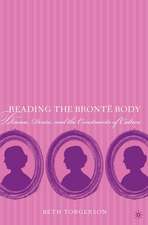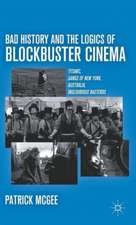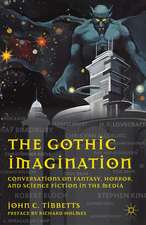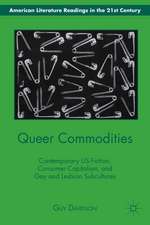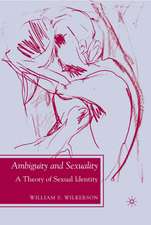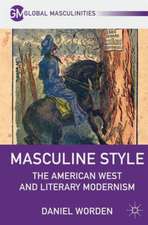The “Femme” Fatale in Brazilian Cinema: Challenging Hollywood Norms
Autor Kenneth A. Loparoen Limba Engleză Hardback – mai 2014
| Toate formatele și edițiile | Preț | Express |
|---|---|---|
| Paperback (1) | 381.59 lei 6-8 săpt. | |
| Palgrave Macmillan US – mai 2014 | 381.59 lei 6-8 săpt. | |
| Hardback (1) | 392.60 lei 6-8 săpt. | |
| Palgrave Macmillan US – mai 2014 | 392.60 lei 6-8 săpt. |
Preț: 392.60 lei
Nou
Puncte Express: 589
Preț estimativ în valută:
75.12€ • 78.44$ • 62.03£
75.12€ • 78.44$ • 62.03£
Carte tipărită la comandă
Livrare economică 15-29 aprilie
Preluare comenzi: 021 569.72.76
Specificații
ISBN-13: 9781137399205
ISBN-10: 1137399201
Pagini: 215
Ilustrații: VII, 215 p. 11 illus.
Dimensiuni: 140 x 216 x 20 mm
Greutate: 0.52 kg
Ediția:2014
Editura: Palgrave Macmillan US
Colecția Palgrave Macmillan
Locul publicării:New York, United States
ISBN-10: 1137399201
Pagini: 215
Ilustrații: VII, 215 p. 11 illus.
Dimensiuni: 140 x 216 x 20 mm
Greutate: 0.52 kg
Ediția:2014
Editura: Palgrave Macmillan US
Colecția Palgrave Macmillan
Locul publicării:New York, United States
Cuprins
Introduction 1. The Black Femme Fatale in Xica da Silva 2. The Femme Fatale's "Troubled" Gender in Madame Satã 3. Social Class and the Virgin/Whore Dichotomy in Bonitinha mas ordinária 4. The Fetish 'Dirt' as 'Social Pollution': The Married Femme Fatale in A dama do lotação 5. The 'Abject' Lesbian Fatale in As intimidades de Analu e Fernanda 6. 'Quoting' the Film-Noir Femme Fatale in A dama do Cine Shanghai Conclusion
Recenzii
'What is original about this study is da Silva's decision to theorize the concept of the femme fatale, a term that has been very much of a shifter, in the sense that it has been moved around the semantic grid to cover multiple concepts or has been used to cover a gap in that grid. The 'Femme' Fatale in Brazilian Cinema is attentive to the queer postulate that sociosexual categories are not fixed lexemes with a rigid hierarchy of sememes, but of gender in a society and its cultural production." - David William Foster, Regent's Professor of Spanish, Women and Gender Studies, Arizona State University, USA
"This innovative book offers an interdisciplinary perspective on the performativity of the so-called 'femme fatale' in a number of Brazilian films primarily from the 1970s and 1980s. Navigating between representations of the femme fatale, or the 'deadly woman', if one prefers, as black, homosexual, slave or as a teenager, da Silva provides a key assessment of the figure for Lusophone Studies and cultural and film studies more generally." - Richard Cleminson, Reader, History of Sexuality, University of Leeds, UK
"This innovative book offers an interdisciplinary perspective on the performativity of the so-called 'femme fatale' in a number of Brazilian films primarily from the 1970s and 1980s. Navigating between representations of the femme fatale, or the 'deadly woman', if one prefers, as black, homosexual, slave or as a teenager, da Silva provides a key assessment of the figure for Lusophone Studies and cultural and film studies more generally." - Richard Cleminson, Reader, History of Sexuality, University of Leeds, UK
Notă biografică
Antônio Márcio da Silva is Coordinator of Portuguese Studies at the University of Kent, UK.


